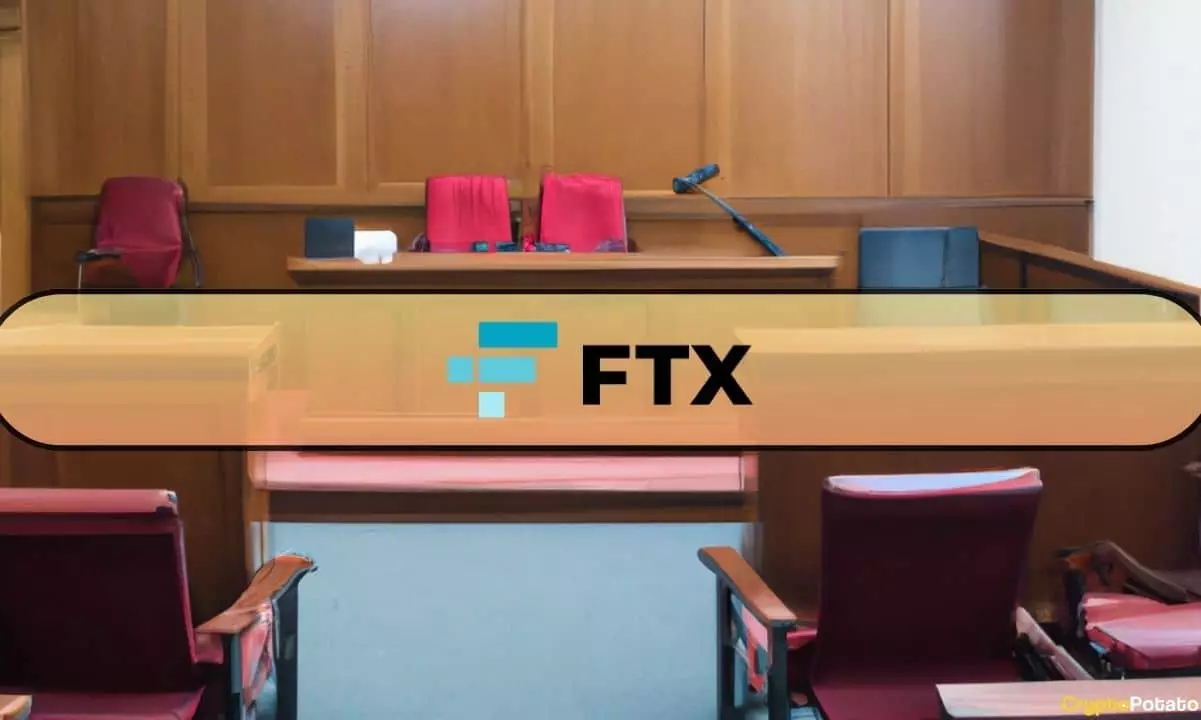FTX’s recent proposal to withhold creditor repayments from users in 49 countries reveals a troubling prioritization of legal compliance over ethical responsibility. The exchange, now bankrupt and struggling to survive its own mismanagement, seeks to classify entire jurisdictions— including China, Russia, and Afghanistan—as “Potentially Restricted Jurisdictions.” This move is not merely a legal technicality; it fundamentally erodes the principles of fairness and due process that underpin a transparent financial system. Disregarding the legitimate claims of creditors based solely on their geographic location sets a dangerous precedent. It subtly signals that certain individuals, due to their nationality or residence, are less deserving of justice—a stance that conflicts with the core values of equitable treatment that any legitimate financial institution should uphold.
Furthermore, the process articulated by FTX—sending notices, seeking legal opinions, and allowing objections—appears more a procedural façade than a genuine effort to uphold legal fairness. Such a system intentionally complicates the recovery process for creditors, especially those in jurisdictions with complex legal landscapes. It effectively erects barriers to justice, ensuring that many claimants, especially those in China, will face denial of their rightful funds. This strategy not only risks legal ramifications but also tarnishes FTX’s reputation, raising questions about whether these moves are driven by financial pragmatism or a calculated indifference to the harm inflicted upon vulnerable users.
The Ethical Crisis Behind the Crowded Courtroom
Many affected individuals and advocacy groups argue that withholding funds based on jurisdiction violates fundamental notions of fairness. After all, cryptocurrency is often misunderstood and poorly regulated within certain jurisdictions, yet residents still participate. Denying claims because of legal restrictions—laws that often change or are inconsistently enforced—compounds injustice, punishing innocent users for the failures or restrictions of their governments. The ethical implications are profound. If a user legally holds and can demonstrate ownership of cryptocurrencies, then their claim to the assets should, in principle, be respected regardless of their physical location.
This approach, however, treats these claimants as collateral damage, rather than individuals deserving respectful treatment. Many argue that treating claims differently based on jurisdiction blurs the line between legality and morality. Is it truly just to penalize millions of users for the legal environment of their country? Even more troubling is the potential for this mechanism to be exploited—allowing FTX to selectively deny payouts under the guise of legal compliance, thus avoiding accountability and scrutiny.
The Power Dynamics and the Future of Creditor Rights
For years, credible voices have voiced concern over the increasing power of bankruptcy and insolvency proceedings to manipulate outcomes, often favoring the interests of the solvent parties or the original debtors. FTX’s plan exemplifies this troubling trend. By asserting that payouts to certain regions are legally forbidden, it effectively marginalizes an entire demographic of creditors, many of whom are desperately owed a portion of their savings or investments.
While some see this as a pragmatic solution—adapting to complex legal environments—others perceive it as a calculated move to absolve FTX from its obligation to its global user base. This approach risks setting a precedent where legal technicalities override basic fairness, opening doors for other corporations to indefinitely delay or deny claims based on jurisdictional technicalities.
Advocates argue that these tactics threaten the integrity of international financial justice. A fair and transparent process necessitates respect for creditor rights, regardless of geography. Otherwise, trust in digital assets and their promise of democratized wealth diminishes, replaced with cynicism and suspicion.
Implications for Global Cryptocurrency Adoption and Regulation
FTX’s latest maneuver reflects the broader challenges faced by the cryptocurrency ecosystem—particularly around regulation and jurisdictional ambiguity. Countries with restrictive or undeveloped legal frameworks risk becoming collateral damage in the fallout of failed exchanges. Denying claims disproportionately impacts users in these regions, reinforcing the perception that cryptocurrencies are tools for the privileged or the legally compliant, not accessible to all.
This situation illuminates the urgent need for clear, globally consistent regulations that protect investors and uphold fairness across borders. It highlights the importance of establishing international standards for insolvency proceedings within the digital asset space rather than allowing corporations to leverage jurisdictional loopholes to evade responsibility. If we wish for a digital economy rooted in trust and fairness, the current approach taken by FTX serves as a cautionary tale—one of how greed and legal mismanagement can lead to systemic erosion of confidence.
In the end, the debate surrounding FTX’s handling of claims in restricted jurisdictions exposes a deeper ideological fissure: do we prioritize legal technicalities over moral obligation? Or do we uphold the spirit of justice as the foundation for a truly inclusive digital financial future? From a center-right perspective that values both individual rights and pragmatic regulation, it’s clear that sidestepping legitimate claims for legal convenience undermines the very principles that should govern fair financial recovery. Ignoring this reality risks weakening the legitimacy of the emerging digital economy and tarnishing its potential as a force for equitable growth.

